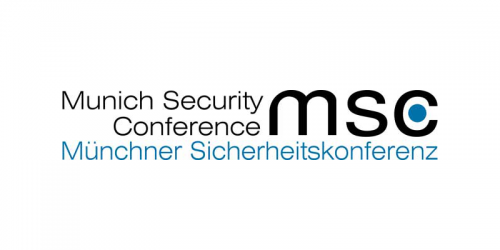
https://www.securityconference.de/en/discussion/munich-security-report/m...
For international security, the year 2017 was marked – among others – by signs of a continued erosion of the so-called liberal international order and an increasingly unpredictable US foreign policy. Tensions in many parts of the world have been growing: the rhetoric between the US and North Korea has escalated, the rift in the Gulf has deepened, not only between Saudi Arabia and Iran, and major arms control treaties are at stake. In the last year, the world got closer – much too close – to the brink of significant conflict, and the international community must do whatever it can to move away from the brink.
It is in this context that the Munich Security Conference Foundation publishes its annual Munich Security Report (download the PDF version of the report here). Under the heading "To the Brink - and Back?", the Munich Security Report 2018 provides an overview of major security policy issues and features data, analyses, maps and infographics. As a companion and impulse for the 54th edition of the Munich Security Conference, the Munich Security Report serves as background reading for conference participants, but is also made available to the general public. The last report was downloaded more than 30,000 times and received ample press coverage in both German and international media. The discussion on Twitter will take place under #MSCreport.
This year's main topics include the crisis of the liberal international order and the impact of the first year of Donald Trump's presidency. The report also covers the new momentum in European defense policy and the potential impact of Brexit. In addition, the report analyses regional developments in Central and Eastern Europe, Africa, and the Middle East. It also provides insights into the state of global nuclear disarmament and non-proliferation efforts, the issue of environmental and climate security as well as cyber security.
The Munich Security Report features a number of exclusive and unpublished materials. For the preparation of the report, the Munich Security Conference has collaborated with renowned partner institutions, including the Carnegie Endowment for International Peace, the International Institute for Strategic Studies (IISS), the James Martin Center for Nonproliferation Studies (CNS), McKinsey & Company, the Mercator Institute for China Studies (MERICS), the Nuclear Threat Initiative (NTI), Oxford Economics, the Peterson Institute for International Economics (PIIE) and the RAND Corporation.
A few select highlights of the Munich Security Report 2018:
- An opinion poll commissioned by the MSC and McKinsey shows that a majority of Europeans want to have their armed forces to be deployable beyond their national borders, preferably around the world.
- Calculations by the RAND Corporation compare the strength of NATO's and Russia's military power in the Baltic States in case of a short-notice confrontation. Russia outnumbers NATO's rapidly deployable combat units in terms of artillery and infantry by far, while NATO possesses air superiority.
- The Vienna Center for Disarmament and Non-Proliferation demonstrates the severe impact a cancellation of the INF treaty could have. The projection shows that Russia’s INF missiles could likely reach every major NATO/US base and nuclear weapon storage sites in Europe.
- New data provided by the Mercator Institute for China Studies (MERICS) shows the significant expansion of China's infrastructure in the South Chinese Sea as well as the increasing global military footprint of China.
- Previously unpublished data by the International Institute for Strategic Studies show the military expenditures and procurement priorities of select African countries. The data show that patrol boats and helicopters, for example, are in demand, whereas there is no procurement contract for systems like submarines, cruisers, destroyers, frigates or corvettes.
- The James Martin Center for Nonproliferation Studies and the Nuclear Threat Initiative provide an assessment of the state of the North Korean nuclear program and an analysis of what a cancellation of the Iranian nuclear deal would mean.
- Unpublished projections by UNEP show the correlation between drought and low intensity conflicts in a world map.










Add new comment